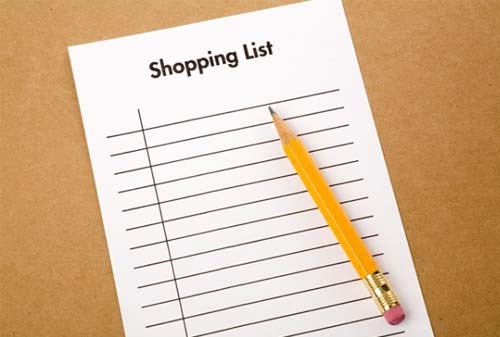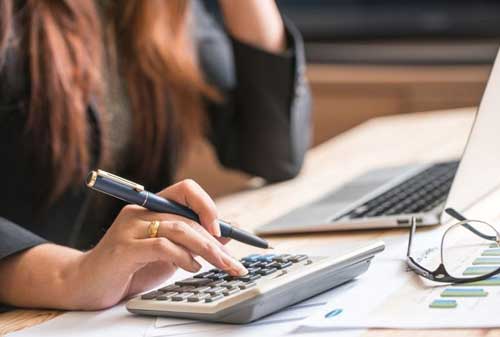6 Causes Of Impulse Buying and How to Resolve It
Have you ever spent much money on an unplanned purchase? Do you often buy goods because of a sudden urge rather than of your shop list?
Do you shop when you burn out or depressed? Do you usually find it’s really hard to resist the desire to pick up catchy kinds of stuff?
If you have 3 yes for the questions, you might have an impulse buying issue. Around 80% of online purchase in the U.S is an impulse buy from young people.
On the season of holiday especially in December and January, the rate is higher.
Do I Have An Impulsive Buying Problem? And Why Does It Happen?
If you identify your 3 or 4 reasons to buy are similar to the causes mention below, the chances are you have a compulsive buying problem. Read on to find out.
#1 Emotion And Feeling
A study shows that people decide to buy because of emotion and feeling. When you are drowning in anger, bored or guilty emotions, feeling stressed out or depressed, that could quickly trigger you to purchase things you don’t need.
In the same way, when you’re in a good mood or excited about something, you tend to purchase for the sake of satisfaction or pleasure.
Alongside, when your body is tired after some works at the office or college, you probably want to drop by for food and drink at a restaurant or café on your way home.
#2 Impulse Items
Snacks, chocolate, candy or clothes on sale are items that some stores often put in front of the aisles or near the checkout to catch the shoppers attention.
Cosmetics products, shoes and bags have been a strong attraction for women to make a spontaneous purchase in big malls.
These products truly have an eye-appeal appearance, nice smells (foods) and sometimes are on sale that makes people having a hard time to resist the temptation to buy. People often unconsciously put them as extra items on their carts.
#3 Addicted To Shopping
The term for this is a shopaholic, a person who has an addiction to shop because it gives him a sense of significant.
[Read: 12 Helpful Shopping Tips On The Holiday Season]
Some people are compulsive spender over branded items of shoes, bags, gadgets or other expensive items because it makes them feel important and respected.
But some do that because of a lack of satisfaction in the past. And others get addicted to shopping to reduce pain from emotional or mental problems.
#4 An Unplanned Shopping Habits
If you used to go shopping without planning it in advance, you will likely end up purchasing items impulsively. Especially when it’s time to buy groceries. People tend to buy at least two items which aren’t necessary for them.
#5 Lifestyle
This factor can influence someone to be a compulsive buyer. Celebrating success over each deal in a job or a salary or commission from each deal is common.
The money usually spent on food, vacation or clothes. This is usually happening among marketing staff in a lucrative business such as property or automobile.
#6 Well-Crafted Promotional Message
Promotional messages often promise that a product can make a customer be more confidence, give a sense of satisfaction, fulfillment, or happiness. This adds strategies intent to exploit the desires of a buyer.
Most expensive products such as cars and houses apply this marketing strategy to attract their buyers.
Now, if you notice that those causes are your reasons to do purchasing, continue to read the impact and solution.
What Is The Negative Impact Of Impulsive Buying?
Financial, Mental And Relational Problems
A person who purchases on impulse will likely to suffer from having debt. In the long run, it will disrupt the financial stability. Later, it can affect the relationship in the family.
People who tend to buy compulsively are exposed to psychological issues from guilty feelings, anxiety, and depression to insecurity.
Do You Know Any Other Negative Effect Of Impulsive Buying? Share Your Answer In The Comment Below.
If you are an emotional buyer, understanding better your internal urge has a tremendous impact on your financial and mental health.
Now, let’s take one step further to learn how to avoid the impulsive purchase.
#1 Make Logical Reasoning Instead Of Emotional One
If you are quickly tempted to pick up a service or impulse items when you are angry or happy, ask yourself questions such as
‘Would this feeling go right away if I buy this chocolate or a new dress?’
‘Do these unplanned purchases cost me nothing?’ or ‘Would I be deeply satisfied if I buy this bag?’
This kind of question clarifies your internal desires or emotions and the reason behind them. It gives you time to reflect on your decision so you won’t be in a rush to get the bag in the first place.
The more you train yourself with this discipline of mind, it’d make a big difference in your expenses and definitely reduce your impulsive buy. The key is reasoning through logic, not emotion.
#2 Make A Shop List
Don’t go shopping without a list. Particularly if your compulsive spending issue is serious. This tool prevents you from rushing ahead and hold you accountable for the purchases.
Write down your shop list on a small note that you can keep on your wallet. If the impulse still arises try swapping the items.
[Read: 6 Amazing Principles For Success That Everyone Needs]
Tell yourself that you’d buy an item only if you remove an on-list product from your cart. Or make a wish list ahead of time, stick it on a refrigerator or other places you can easily see.
This way gives you the chance to really think about your budget and the reason to have the items on the wish list.
#3 Budgeting
It is helpful to plan your budget ahead of time. In this way, you also hold yourself accountable to your spouse if you are married. Make a separated bank account for the shopping budget if necessary.
Try this 30/20/20/20/10 also to allocate the hard-earned money. Use 30% of your after tax-cut income on necessities. This includes groceries, housing, basic utilities, transportation, minimum loan payments, and child care.
[Read: How To Make Money For Every Profession Quickly, Check This Out!]
At least give 20% on debt repayment and insurance, and 20% on savings. For entertainment no more than 20% and 10% for religious or charity purposes. But, this allocation is varied and depends on your income, occupation, and lifestyle.
Constantly plan your budget helps you track your spending and prevent you from the stress of having financial issues.
#4 Cash, Please
Another way to restrain compulsive spending is by preparing the amount of cash according to your shop list budget.
This keeps you spending under or on budget. You’d think twice to add extra items on the cart because you wouldn’t have enough cash to afford them.
#5 Shop Alone
Shop by yourself will prevent the impulse purchase especially if it’s from your friend or relative. But if you are with your children in the store, they would likely to get items that are not on your shop-list.
So let them know in advance the items you want to buy. When you are in the store have them find for you the items on the list. It will distract them from buying on impulse.
This also can be a good opportunity for you to educate them. Besides they would remember and appreciate you for letting them help you. You probably might prepare a little reward for their help after the shop trip.
#6 Spot Your Trigger
Notice what feeling or emotions that prompt you to buy items after a half minute staring at them.
Is it because of the sadness you have for failing on a test? Is it anger because you had an argument with a co-worker in the office? Or is it excitement for receiving your salary and commission of the month? Or is it simply because you are tired of piles of tasks you must get done soon?
These emotions can vary from any of your experiences during the day or even from yesterday. Write those feelings and their triggers on a small note to better reckon them.
Next time they pop up, you can choose to pause or postpone shopping to the next day until the emotions disappear. Better shopping when you are cooling down or not tired.
Do you think these solutions are practical and helpful? Please leave your comment below and let us know if you have other ideas or solutions.
Conclusion
Every unplanned purchase is an impulsive buying. It is also a decision to buy items right away and is triggered by emotional reasoning.
At least 2 out of 5 items purchased from the store are on the impulsive decision and made particularly by young people.
But, the problem of impulsive buying is an internal one. It comes from the uncontrolled and sometimes unchecked desires which need to be fulfilled soon with an expectation that a subject will feel important, respected or calmer or more confidence after having the desired items.
Knowing why it happens and applying the solutions to reduce the impulse truly made a big impact on your financial and mental health.
A good reminder from a Nazi survivor Viktor E. Frankl on impulsive behavior and the importance of our response ‘between stimulus and response there is a space. In that space is our power to choose our response. In our response lies our growth and our freedom’.
May you find this article useful for you or other people whom you know are struggling with this issue. Let them know by sharing this information.
And, please share also your testimony in coping with impulsive buying or other related subject by leaving your comment below.
Remember that impulsive behaviors only diminish your freedom.
References:
- Torrey Kim. December 12th, 2018. Practical Ways to Curb Impulse Buying. Thebalanceeveryday.com. https://bit.ly/2Zqm0qN.
- September 27th, 2013. Impulsive Buying (Pembelian Impulsif) + Solusinya. Finansialku.com. https://bit.ly/2ZoAqb4.
- Penina Asbanu. May 10th, 2019.12 Helpful Shopping Tips on the Holiday Season. Finansialku.com. https://bit.ly/2Ii7trL.
- Amy Fontinelle. May 13th, 2019. 5 Ways to Control Emotional Spending. Investopedia.com. https://bit.ly/2JpKawX.
- May 5th, 2019. Impulse Purchase. Wikipedia.com. https://bit.ly/2LP7BSd.
- Brandon Gaille. May 22nd, 2017. 19 Dramatic Impulse Buying Statistics. Brandongaile.com. https://bit.ly/2w9l38i
Image Credit:
- Impulse Buying – http://bit.ly/31KN9qt














Leave A Comment